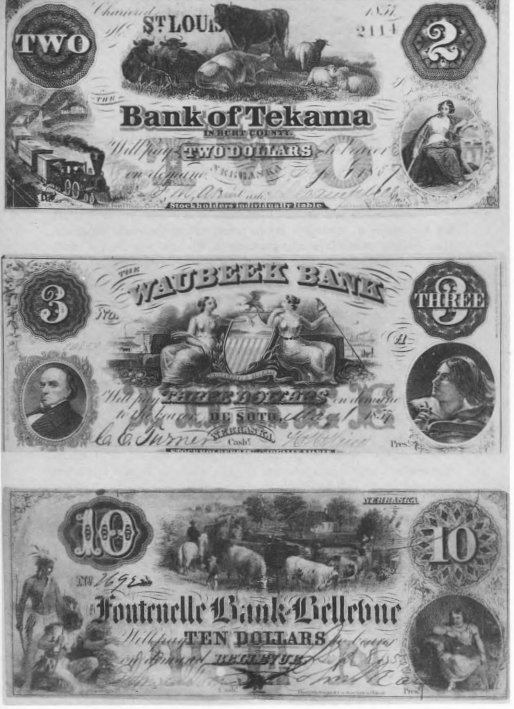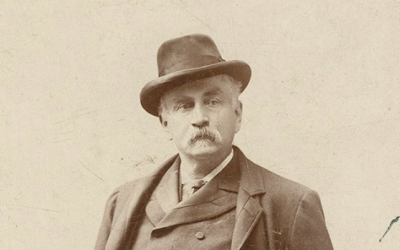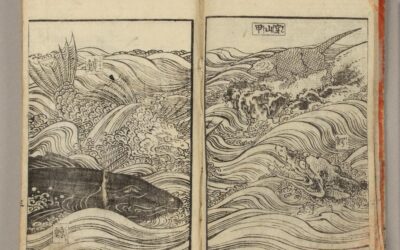Banking was one of the earliest businesses established in Nebraska Territory, as well as one of the most controversial, yet little effort has been made to investigate the economic role of Territorial banks and their relation to the Territorial government. What purpose did the banks serve, and to what extent were they influenced by the government?
The Territorial period of Nebraska may be typified as a period of optimism and speculation. The interest in land speculation was great, and by “1857 individual lots on the river landings of some towns were valued at $10,000. Three or four blocks back they sold for $2,000, and even those as far distant as a half mile brought $ 1, 200.” ln fact, the main interest of many of the early settlers seems to have been speculation. They hoped to become rich quickly and then return to the east to lead a life of leisure. Even agriculture was not developed to any extent prior to the panic years of 1857 and 1858.
The absence of productive industries explains the severe shortage of “hard currency” which existed throughout most of the Territorial period. The residents needed manufactured products from the Eastern States but produced almost nothing of an exportable nature. Consequently, they not only were forced to expend their supply of “hard currency” but were unable to replenish the supply. The resultant shortage of currency created great difficulty in the conduct of economic affairs in the new Territory because there was nothing to serve as a medium of exchange.
Under the existing circumstances only two, perhaps three, alternatives were available to the Territorial citizens. One alternative would have been a barter system, but a barter system is extremely clumsy and was not used. The second alternative was the creation of banks with the power to issue notes which would circulate as currency. Another alternative was increased production of products which could be sold on eastern markets. While increasing production provided the best choice for the long run, it was not an adequate solution for the short run because of the time required to increase production. Thus, as pointed out above, the Territorial Nebraskans really had only two choices.
Read the full article here.

Some examples of territorial bank notes.




